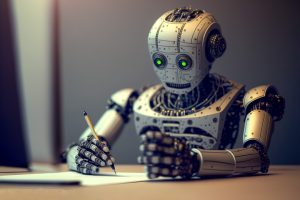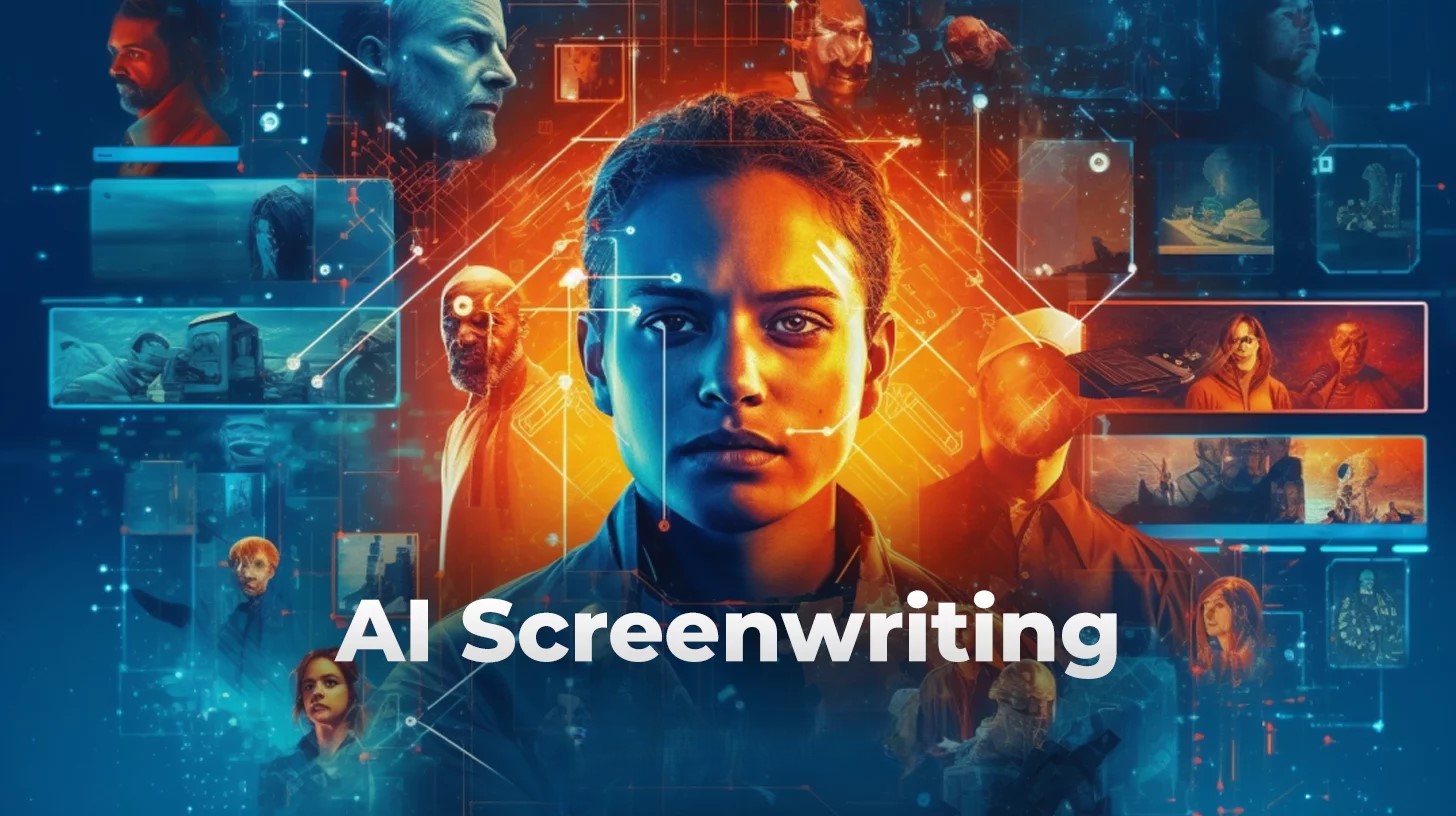Introduction
The world of entertainment, particularly Hollywood, has always been at the forefront of technological innovation. From the early days of silent films to the advent of CGI, each technological leap has transformed the way stories are told. Today, we are witnessing another groundbreaking shift: the integration of artificial intelligence (AI) into scriptwriting. This article explores how AI is revolutionizing scriptwriting in Hollywood, examining its benefits, challenges, and the future of this dynamic interplay between technology and creativity.
The Evolution of Scriptwriting

-
Traditional Scriptwriting
Script writing has long been a labor intensive process. Writers spend countless hours developing characters, crafting dialogues, and structuring plots. This traditional approach relies heavily on human creativity and intuition, with each script reflecting the unique voice and vision of its author.
-
The Advent of AI in Scriptwriting
AI scriptwriting represents a significant departure from traditional methods. By leveraging machine learning algorithms and natural language processing (NLP), AI can analyze vast datasets of existing scripts, identify patterns, and generate new content. This technology promises to streamline the scriptwriting process, making it more efficient and accessible.
How AI Scriptwriting Works

-
Data Collection and Analysis
The first step in AI scriptwriting involves data collection. AI systems are trained on extensive datasets comprising thousands of scripts from various genres and periods. These datasets enable AI to understand narrative structures, character development, and dialogue styles.
-
Machine Learning and Pattern Recognition
Once the data is collected, machine learning algorithms analyze it to identify patterns and trends. For instance, AI can recognize common plot structures, character archetypes, and dialogue nuances. This pattern recognition allows AI to generate scripts that adhere to established storytelling conventions while introducing innovative elements.
-
Natural Language Processing
Natural language processing (NLP) is a crucial component of AI scriptwriting. NLP enables AI to understand and generate human language, ensuring that the scripts it produces are coherent and engaging. By analyzing the syntax, semantics, and context of existing scripts, AI can create dialogues and narratives that resonate with audiences.
Benefits of AI Scriptwriting in Hollywood

-
Increased Efficiency
One of the most significant advantages of AI scriptwriting is increased efficiency. Traditional scriptwriting can be a time-consuming process, often taking months or even years to complete. AI can expedite this process by generating scripts in a matter of hours or days, allowing filmmakers to bring their projects to life more quickly.
-
Enhanced Creativity
Contrary to the notion that AI stifles creativity, many industry professionals believe that it can enhance it. AI can serve as a creative collaborator, offering new ideas and perspectives that writers may not have considered. By analyzing a vast array of scripts, AI can introduce novel plot twists, character developments, and dialogue styles, enriching the creative process.
-
Cost Savings
Scriptwriting can be an expensive endeavor, particularly for large-scale productions. AI can help reduce costs by automating certain aspects of the scriptwriting process. This cost-effectiveness is especially beneficial for independent filmmakers and smaller studios with limited budgets.
-
Data-Driven Insights
AI’s ability to analyze large datasets provides valuable insights into audience preferences and trends. By understanding what resonates with viewers, filmmakers can tailor their scripts to meet audience expectations, increasing the likelihood of commercial success.
Challenges and Concerns

-
Quality and Originality
One of the primary concerns surrounding AI scriptwriting is the quality and originality of the generated content. While AI can produce coherent and engaging scripts, there is a risk that these scripts may lack the unique voice and vision of human writers. Ensuring that AI-generated scripts maintain a high standard of quality and originality is a significant challenge.
-
Ethical Considerations
The integration of AI into scriptwriting raises several ethical questions. For instance, who owns the rights to an AI-generated script? Additionally, there are concerns about the potential displacement of human writers. Addressing these ethical considerations is crucial to the responsible implementation of AI in Hollywood.
-
Technical Limitations
Despite its advancements, AI technology is not without limitations. AI systems may struggle with understanding complex emotions, cultural nuances, and subtext, which are often critical components of compelling storytelling. Overcoming these technical limitations is essential for the continued evolution of AI scriptwriting.
The Future of AI Scriptwriting in Hollywood

-
Collaborative Creativity
The future of AI scriptwriting in Hollywood is likely to be characterized by collaborative creativity. Rather than replacing human writers, AI can serve as a valuable tool that enhances the creative process. By working together, human writers and AI can produce scripts that are both innovative and emotionally resonant.
-
Personalized Content
AI has the potential to revolutionize personalized content creation. By analyzing individual viewer preferences, AI can generate customized scripts tailored to specific audiences. This personalization could lead to more engaging and immersive storytelling experiences.
-
Continuous Improvement
As AI technology continues to evolve, its capabilities in scriptwriting will improve. Advances in machine learning, NLP, and data analysis will enable AI to produce even more sophisticated and nuanced scripts. The ongoing refinement of AI systems will ensure that they remain valuable assets in the scriptwriting process.
Conclusion
AI is undoubtedly revolutionizing scriptwriting in Hollywood. By increasing efficiency, enhancing creativity, and providing data-driven insights, AI is transforming the way stories are told. While there are challenges and ethical considerations to address, the future of AI scriptwriting holds immense promise. As technology and creativity continue to intersect, we can expect to see a new era of storytelling that captivates and inspires audiences worldwide.




